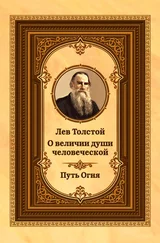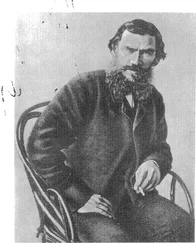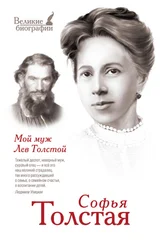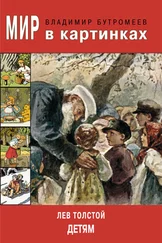Лев Толстой - Katia
Здесь есть возможность читать онлайн «Лев Толстой - Katia» весь текст электронной книги совершенно бесплатно (целиком полную версию без сокращений). В некоторых случаях можно слушать аудио, скачать через торрент в формате fb2 и присутствует краткое содержание. Издательство: Иностранный паблик, Жанр: Русская классическая проза, на английском языке. Описание произведения, (предисловие) а так же отзывы посетителей доступны на портале библиотеки ЛибКат.
- Название:Katia
- Автор:
- Издательство:Иностранный паблик
- Жанр:
- Год:неизвестен
- ISBN:нет данных
- Рейтинг книги:3 / 5. Голосов: 1
-
Избранное:Добавить в избранное
- Отзывы:
-
Ваша оценка:
- 60
- 1
- 2
- 3
- 4
- 5
Katia: краткое содержание, описание и аннотация
Предлагаем к чтению аннотацию, описание, краткое содержание или предисловие (зависит от того, что написал сам автор книги «Katia»). Если вы не нашли необходимую информацию о книге — напишите в комментариях, мы постараемся отыскать её.
Katia — читать онлайн бесплатно полную книгу (весь текст) целиком
Ниже представлен текст книги, разбитый по страницам. Система сохранения места последней прочитанной страницы, позволяет с удобством читать онлайн бесплатно книгу «Katia», без необходимости каждый раз заново искать на чём Вы остановились. Поставьте закладку, и сможете в любой момент перейти на страницу, на которой закончили чтение.
Интервал:
Закладка:
My husband interfered in nothing concerning the management of the house, confining himself to the control of the estate, and the affairs of the peasants, which fully occupied him.
He rose very early, even during the winter, so that he was always gone when I woke. He generally returned for tea, which we took alone together; and at these times, having finished the troubles and annoyances of his agricultural matters, he would often fall into that particularly joyous light-hearted state of mind, which we used to call le transport sauvage . Often, when I asked him to tell me what he had been doing all the morning, he would relate such perfectly absurd adventures, that we would almost die of laughing; sometimes when I demanded a sober account, he would give it to me, making an effort to restrain even a smile. As for me, I watched his eyes, or the motion of his lips, and did not understand a word he said, being entirely taken up with the pleasure of looking at him and hearing his voice.
“Come, now, what was I saying?” he would ask; “repeat it to me!”
But I never could repeat any of it.
Tatiana Semenovna never made her appearance until dinner time, taking her tea alone, and only sending an ambassador to wish us good-morning. I always found it hard not to burst out laughing, when the maid entered, took her stand before us with her hands crossed one upon the other, and, in her measured tones informed us that Tatiana Semenovna desired to know whether we had slept well, and whether we liked the little cakes we had for tea. Until dinner time we seldom remained together. I played, or read, alone; he wrote, or sometimes went out again; but at four o’clock we went down to the drawing-room for dinner. Mamma came out of her chamber, and then the poor gentle-folk and pilgrims who happened to be lodging in the house, usually two or three in number made their appearance. Regularly every day my husband, following the ancient custom, offered his arm to his mother, to conduct her to the dining-room, and she requested him to take me upon his other arm. Mamma presided at dinner, and the conversation was of a serious, thoughtful turn, not altogether without a shade of solemnity. The simple every-day talk between my husband and myself was the only agreeable diversion in the grave aspect of these table sessions. After dinner, Mamma took her seat in a large arm-chair in the salon, and cut open the leaves of any newly-arrived books; we read aloud, or went to the piano in the small drawing-room. We read a great deal together during those two months, but music continued to be our supreme enjoyment, for every day it seemed to strike some new chord in our hearts, whose vibrations revealed us to each other more and more wholly. When I was playing his favorite airs he retired to a divan at some distance, where I could scarcely see him, and with a kind of modesty of sentiment tried to conceal from me the emotion my music produced; but, often, when he least expected it, I rose from the piano and ran to him, to try to surprise upon his countenance the traces of this deep feeling and to catch the almost supernatural light in the humid eyes which he vainly strove to conceal from me. I presided over our late tea in the large drawing-room, again all the family were gathered round the table, and for a long time this formal assembling near the samovar, as in a tribunal, with the distribution of the cups and glasses, discomposed me very much. It always seemed to me that I was not yet worthy of these honors, that I was too young, too giddy, to turn the faucet of that stately samovar, set the cups on Nikita’s tray and say: “For Peter Ivanovitch; for Maria Minichna,” and ask: “Is it sweet enough?” And afterwards give out the lumps of sugar for the white-haired nurse and the other old servants. “Perfect, perfect,” my husband would often tell me; “quite a grown-up person!” and then I would feel more intimidated than ever.
After tea Mamma played patience, or she and Maria Minichna had a game of cards together; then she embraced us both and gave us her blessing, and we withdrew to our own apartment. There, however, our evening tête-à-tête was usually prolonged until midnight, for these were our pleasantest hours in the twenty-four. He told me about his past life, we made plans, occasionally we philosophized, all the time talking in a low tone lest we might be overheard. We lived, he and I, almost upon the footing of strangers in this huge old house, where everything seemed to be weighed upon by the severe spirit of ancient times and of Tatiana Semenovna. Not only she herself, but also the servants, all these old men and women, the furniture, the pictures, all inspired me with respect and a kind of fear, and at the same time with the consciousness that my husband and I were not exactly in our own place there and that our conduct must be extremely circumspect. As well as I remember, now, this severe order and the prodigious number of idle, inquisitive men and women about our house were very hard to bear: but even this sense of oppression only served to vivify our mutual love. Not only I, but he also, made an effort not to let it be seen that anything in our home was displeasing to us. Sometimes this calmness, this indulgence, this seeming indifference to everything, irritated me, and I could not help looking upon such conduct as weakness, and telling him so.
“Ah, dear Katia,” he replied, once, when I was expressing my annoyance, “how can a man show that anything, no matter what, is displeasing to him, when he is as happy as I am? It is a great deal easier to yield, than to make them yield, I have long been convinced of that, – and, moreover, of the fact there is no situation where one cannot be happy. Everything goes so well with us! I do not even know, any longer, how to get angry; for me, just now, there is nothing at all that is bad, there are only things that are either dull or droll. But, above all, ‘let well enough alone.’ You may hardly believe me, but whenever I hear a ring at the door-bell, whenever I receive a letter, actually whenever I wake in the morning, a fear takes hold of me, fear of the obligations of life, fear that something may be going to change; for nothing could be better than this present moment!”
I believed him, but I could not understand him. I was happy, but it seemed to me that all was as it ought to be, and could not be otherwise; that it was the same with every one else, and that somewhere there were other joys still, not greater ones, but quite different.
Thus two months passed by, bringing us to the cold, stormy winter, and although he was with me, I began to feel somewhat alone; I began to feel that life was doing nothing but repeating itself, as it were; that it offered nothing new either for me or for him; that, on the contrary, we seemed to be forever treading over and over again in our own footsteps. He was more frequently occupied with business matters away from me, than he had been at first, and once more I had the old feeling that far down in his soul lay a world, hidden and reserved, to which he would not admit me. His unalterable serenity irritated me. I loved him no less than formerly, was no less happy in his love; but my love remained stationary and did not seem to grow any more, and besides this love a new sentiment, full of anxiety, came creeping into my heart. Continuing to love seemed to me so small a thing after that great transport of first loving him; I felt as if my sentiments ought to include agitation, danger, sacrifice of myself. There were in me exuberant forces finding no employment in our tranquil existence, fits of depression which I sought to conceal from him as something wicked, fits of impetuous tenderness and gaiety which only alarmed him. He still had his old habit of watching me and studying my moods, and one day he came to me with a proposal to move to the city for a time; but I begged him not to go, not to alter anything whatever in our mode of life, not to touch our happiness. And, really and truly, I was happy; but I was tormenting myself because this happiness brought me no labor, no sacrifice, while, I felt all the powers of sacrifice and labor dying away within me. I loved him, I knew that I was entirely his; but I wished every one to see our love, wished that some one would try to prevent my loving him, – and then to love him all the same! My mind, and even my sentiments, found their field of action, but yet there was something – the sense of youth, with its need of movement – which had no sufficient satisfaction in our placid life. Why did he tell me that we could go to the city whenever the fancy seized me to do so? If he had not said this, perhaps I might have understood that the feeling which oppressed me was a pernicious chimera, a fault of which I was guilty… But the thought kept coming into my head that simply by going to the city, I could escape from my ennui; but then, on the other hand, this would be withdrawing him from a life that he loved; I was ashamed to do this, but it cost me something not to do it.
Читать дальшеИнтервал:
Закладка:
Похожие книги на «Katia»
Представляем Вашему вниманию похожие книги на «Katia» списком для выбора. Мы отобрали схожую по названию и смыслу литературу в надежде предоставить читателям больше вариантов отыскать новые, интересные, ещё непрочитанные произведения.
Обсуждение, отзывы о книге «Katia» и просто собственные мнения читателей. Оставьте ваши комментарии, напишите, что Вы думаете о произведении, его смысле или главных героях. Укажите что конкретно понравилось, а что нет, и почему Вы так считаете.










